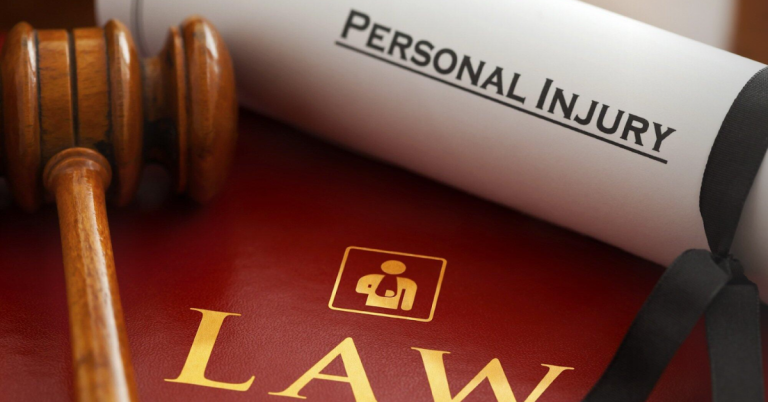A Comprehensive Guide to the Bond Process for Domestic Battery Charges

Domestic battery is a serious issue affecting many households. It involves the use of physical force against a partner, spouse, or family member. This violence can lead to severe injuries and emotional trauma.
Victims of domestic battery often feel trapped and fearful. They may hesitate to seek help due to shame or concern for their safety. In this blog, we will learn about the bond process for domestic battery charges.
Arrest Process
When police respond to a call about domestic battery, they may arrest the suspect. Officers will gather information from both the victim and the accused. This helps them understand what happened before making a decision.
Once arrested, the suspect is taken to jail. They will remain in custody until a judge can review the case. During this time, the suspect may worry about jail time if they are convicted.
The next step is a bond hearing. At this hearing, a judge decides if the suspect can be released. If the judge allows it, the accused will have to pay a set amount to get out of jail until their court date.
Initial Court Appearance
The initial court appearance is a critical step for alleged offenders. This is their first chance to speak before a judge after the arrest. During this appearance, the judge hears the charges against them.
At the hearing, the judge will discuss important details such as bail. Bail is the amount of money that allows suspected offenders to be released while they wait for the trial. If bail is set, the accused must pay it to leave jail.
The judge will also explain their rights during this process. Offenders have the right to legal representation. They should seek a lawyer who can help them navigate the legal system.
Understanding Bond Types
When dealing with domestic battery charges, it is important to know the different types of bonds available. The most common types of bonds are cash bonds, surety bonds, and property bonds. Each type has its own rules and requirements.
A cash bond requires the accused to pay a set bail amount in full. Once the case is over, this money is usually returned. However, if the accused misses court, they can lose their cash bond.
Surety bonds involve a third party, like a bail bondsman, who helps with the payment. The accused pays a fee to the bondsman, and they take responsibility for the bail. Property bonds use real estate as collateral instead of cash.
Factors Influencing Bond Amount
Several factors can affect the bond amount for domestic battery charges. One major factor is the severity of the alleged crime, which can lead to higher bail amounts if serious injuries are involved.
Another important consideration is the accused’s criminal history. If the person has a record of previous charges, the judge may set a higher bond to ensure their appearance in court.
The likelihood of the accused fleeing could also impact the bond amount. Judges may increase bail if they believe the person poses a risk of not returning for their court date.
Conditions of Release
Conditions of release are rules set by the judge when a suspect is allowed to leave jail on bond. These conditions aim to ensure the suspect’s appearance in court and the safety of the victim.
Common conditions include not contacting the victim and staying away from their home.
Failure to follow these conditions can lead to serious consequences. The judge may revoke the bond, and the suspect could be sent back to jail until their trial.
Posting Bond
Posting bond allows the accused to be released from jail before their court date. This process involves paying the determined bond amount set by the judge.
To post A bond, the accused or their representative must go to a jail or courthouse. They will need to provide the necessary payment and fill out some paperwork.
Once the bond is posted, the accused can leave jail. It is important to remember that missing court dates can lead to serious penalties, including losing the bond money.
Bail Bondsmen and Surety Bonds
Bail bondsmen are helpful when a person cannot pay their bond. They work as a third party, giving money to the court on behalf of the accused. In return, the accused pays the bail bondsman a fee, which is usually a percentage of the bond amount.
Surety bonds are a common type of bail that involves a bondsman. Bondsman guarantees that the accused will appear in court. If the accused fails to show up, the bondsman must pay the full bond amount to the court.
Using bail bonds can give people a way to stay out of jail while waiting for their trial. It is important to keep in touch with the bail bondsman. Missing court dates can have serious consequences for everyone involved.
Pretrial Monitoring
Pretrial monitoring is a system used to supervise suspects who are out on bond. It helps ensure they follow court orders and appear for their hearings.
This monitoring can include check-ins with a probation officer. Some may also be required to wear an electronic ankle monitor.
Violating the rules of pretrial monitoring can lead to serious consequences. If someone fails to comply, their bond can be revoked, and they may return to jail.
Consequences of Failing to Appear in Court
Failure to appear in court can lead to serious consequences for the accused. First, a judge may issue a bench warrant for their arrest, meaning police can take them back into custody.
Additionally, the bond may be revoked. This means that if the accused posted bail, they could lose the money they paid or pledged.
Missing a court date could also hurt their case. It could make it harder for the accused to negotiate a better outcome and could result in more severe penalties if they are convicted.
Finding Hope After Domestic Battery
In conclusion, domestic battery is a serious issue that can affect many lives. Victims must seek help and understand their options. They must know that they are not alone.
The legal process can be confusing, but it is important to stay informed. Understanding bond and court appearances can help the accused navigate their situation. With the right support, people can find a path forward.
Healing takes time, but it is possible. Reaching out for help is a brave step.
Did this article help you? Browse our blog for more interesting topics.






